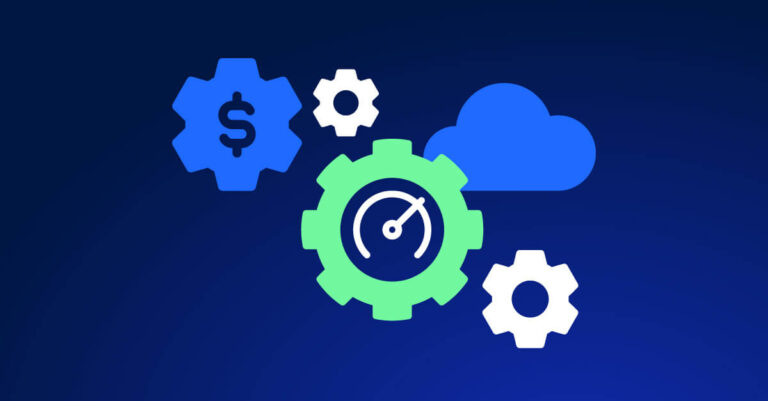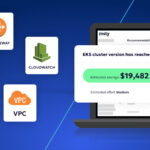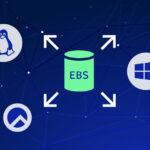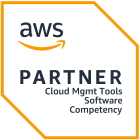
This is why modern finance professionals must understand FinOps
The introduction of cloud computing has brought numerous benefits, such as increased availability, flexibility, scalability, and faster deployment of IT resources. However, real-time usage stands out as the most significant advantage. It has made IT development more efficient, allowing teams to quickly access and scale resources as needed. But on the other hand, the financial aspect has suffered.
Finance teams now need to face the challenges of handling complex cloud billing, understanding various pricing models, and cost management. The traditional methods of budget approval and expense tracking are no longer sufficient in a world where cloud resources can be provisioned and scaled instantly. This shift requires finance professionals to adapt to a more dynamic approach to financial planning and collaboration. This involves working closely with IT, infrastructure, and DevOps teams to ensure cloud spending aligns with strategic goals, while also addressing the ongoing challenge of balancing cost with application performance and user experience. Finance professionals also need to educate themselves on cloud billing fundamentals and the FinOps framework.
This blog will cover the benefits of a clear understanding of FinOps for finance professionals, highlighting how it can enhance their roles and contribute to organizational success. Read on!
Collaboration of Financial, Operational, and Integrated Planning
In the times of traditional procurement, technology investment approvals often took months or even years. This lengthy process involved IT teams pitching the need for resources, obtaining management buy-ins, and having finance propose a budget. While the process was complex, it provided finance teams with complete visibility and control over expenses. Finance could create detailed, data-driven cost reports without direct involvement from tech teams, leading to a smoother workflow.
However, the introduction of the cloud changed this dynamic significantly. The cloud’s biggest advantage is real-time usage, which has greatly benefited tech teams. But, finance has struggled with challenges such as a lack of visibility, difficulty in accessing and interpreting cost data, creating detailed management reports, and an inadequate understanding of cloud economics. Additionally, finance teams often find it challenging to grasp the technical requirements that directly impact costs. Most importantly, there is a lack of collaboration between finance and their tech colleagues.
This change led to the introduction of FinOps, a framework designed to bridge the gap between finance, DevOps & infrastructure, and business units. It encourages a culture of shared accountability, where financial and technical teams work together to optimize cloud spending and align it with business objectives. By integrating financial management with cloud operations, FinOps enables finance teams to gain real-time insights into cloud usage and costs, facilitating more informed decision-making. This collaboration not only improves financial oversight but also empowers organizations to maximize the business value of their cloud investments.
Benefits of Clear Understanding of FinOps for Finance Professionals
A clear understanding of the FinOps framework offers numerous benefits for finance professionals, enhancing their ability to analyze cloud costs and make informed financial decisions:
-
Detailed Cost Visibility and Reporting:
FinOps provides finance teams with comprehensive visibility into cloud spending, breaking down costs by service, department, or project. It enables the creation of detailed cost reports that break down expenses at a granular level, such as by usage type, region, or instance size. This level of detail helps finance teams track spending patterns, compare costs across different regions or departments, and identify opportunities for optimization. Many native tools for cost reporting, such as AWS Cost and Usage Reports are available, along with third-party visibility tools.
-
Unit Economics:
By understanding the unit economics of cloud services, finance professionals can evaluate the cost-effectiveness of different services or solutions. For instance, calculating the cost per transaction/client allows teams to assess whether the pricing model aligns with expected revenue or user growth. This understanding aids in making informed decisions about scaling services up or down based on their cost efficiency and business value. Furthermore, for products that heavily rely on cloud services (such as SaaS and e-commerce platforms, IoT applications etc.), it is crucial to implement effective tagging to understand specific cloud costs, which is essential for accurate pricing.
-
Enhanced Budgeting:
FinOps provides finance teams with the data needed to create accurate, data-driven budgets that reflect actual usage patterns and trends. By leveraging historical data and usage forecasts, finance professionals can develop budgets that align with business needs and anticipate future spending. This approach helps prevent budget overruns and ensures that financial resources are allocated effectively. Finance teams can also leverage platforms like AWS Budgets and AWS Cost Explorer which help in defining budgets and sending automated alerts when thresholds are exceeded.
-
Benchmarking and Performance Measurement:
FinOps facilitates benchmarking cloud performance against industry standards or internal targets. By measuring key performance indicators (KPIs), finance teams can assess whether cloud investments are delivering expected returns and align with strategic goals. For example, comparing the cost efficiency of cloud services with industry benchmarks and internal projects helps organizations determine if they are overpaying for services and identify areas for improvement.
-
Better Cost Control:
FinOps enables organizations to optimize cloud costs more effectively by providing tools and best practices to identify unused spending, detect cost anomalies, and negotiate better rates. By optimizing usage and leveraging discount plans, such as Reserved Instances or Savings Plans, organizations can significantly reduce cloud waste and achieve more savings. These actions lead to happier finance teams as they see improved cost efficiency, continuous monitoring, and better alignment with budget goals.
-
Data-Driven Decision Making:
FinOps supports data-driven decision-making by providing finance professionals with access to detailed and timely data on cloud spending. This enables them to analyze spending patterns, identify trends, and make informed decisions based on accurate information. With FinOps, finance teams can use data analytics tools to gain insights into cost drivers, evaluate the financial impact of different scenarios, and prioritize spending decisions that align with business objectives. Ultimately, FinOps empowers finance teams to make strategic decisions that improve financial health and operational efficiency.
-
Improved Forecasting:
A deep understanding of cloud cost dynamics enhances forecasting accuracy, enabling finance teams to predict future spending based on current trends and business plans. By using real-time data and analytics, finance professionals can create forecasts that support strategic decision-making and provide insights into future resource needs. This proactive approach helps organizations plan for growth and scale cloud resources efficiently.
Final Thoughts
As more organizations adopt FinOps, its importance in streamlining cloud financial management becomes increasingly evident. It’s crucial for finance teams to familiarize themselves with this framework to stay competitive and efficient. FinOps not only enhances financial oversight but also encourages the development of R&D teams that operate with “cost in mind.” By integrating cost considerations into the development process, teams can innovate while remaining financially responsible.
Companies should organize webinars and training sessions to help them understand FinOps better. Finance professionals should also seek opportunities to deepen their knowledge of FinOps, enhancing their strategic role and contributing effectively to business growth.
For more insights into FinOps and ways to optimize your cloud spending, follow Zesty’s blogs.
To learn how we can help you save money and streamline your cloud costs, book a demo call with us today.









